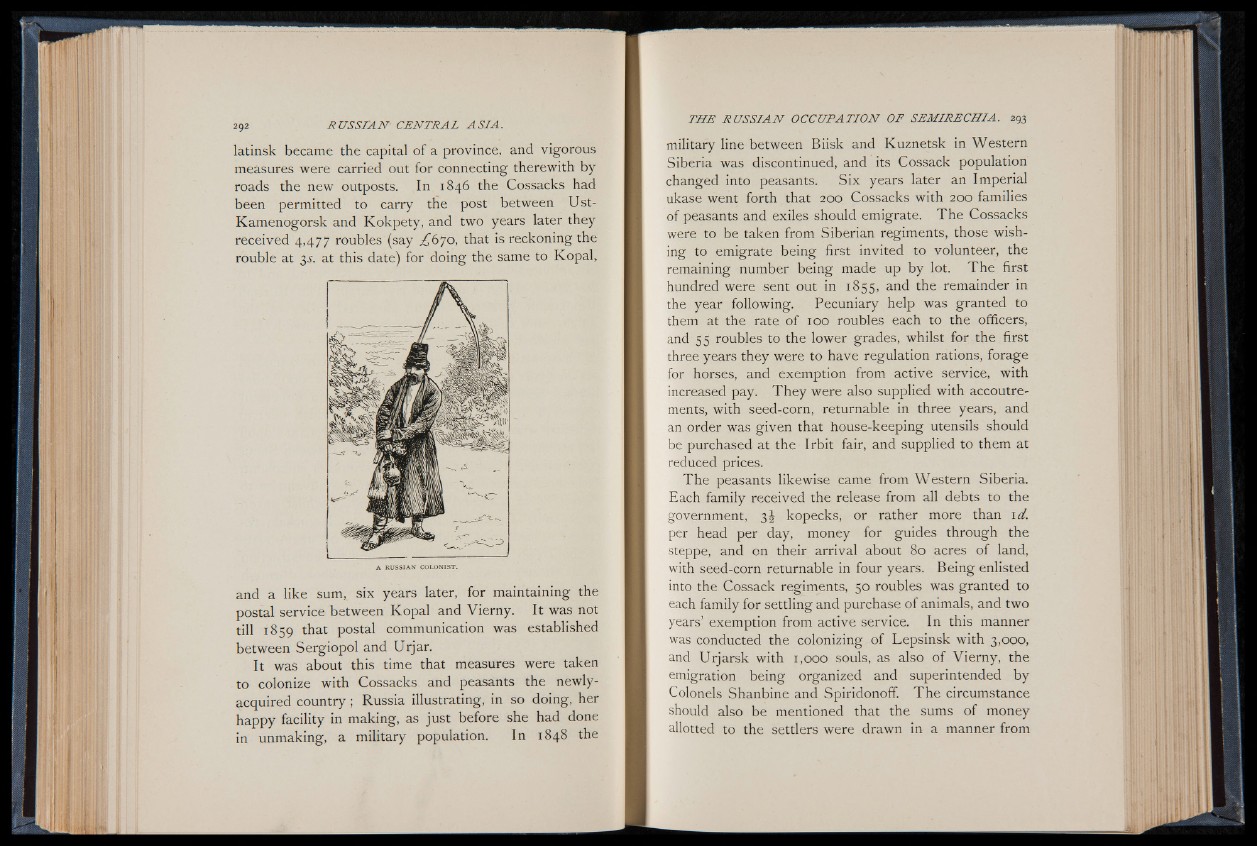
latinsk became the capital of a province, and vigorous
measures were carried out for connecting therewith by
roads the new outposts. In 1846 the Cossacks had
been permitted to carry the post between Ust-
Kamenogorsk and Kokpety, and two years later they
received 4,477 roubles (say £670, that is reckoning the
rouble at 3^. at this date) for doing the same to Kopal,
I--------------------------
A RUSSIAN COLONIST.
and a like sum, six years later, for maintaining the
postal service between Kopal and Vierny. It was not
till 1859 that postal communication was established
between Sergiopol and Urjar.
It was about this time that measures were taken
to colonize with Cossacks and peasants the newly-
acquired country; Russia illustrating, in so doing, her
happy facility in making, as just before she had done
in unmaking, a military population. In 1848 the
military line between Biisk and Kuznetsk in Western
Siberia was discontinued, and its Cossack population
changed into peasants. Six years later an Imperial
ukase went forth that 200 Cossacks with 200 families
of peasants and exiles should emigrate. The Cossacks
were to be taken from Siberian regiments, those wishing
to emigrate being first invited to volunteer, the
remaining number being made up by lot. The first
hundred were sent out in 1855, and the remainder in
the year following. Pecuniary help was granted to
them at the rate of 100 roubles each to the officers,
and 55 roubles to the lower grades, whilst for the first
three years they were to have regulation rations, forage
for horses, and exemption from active service, with
increased pay. They were also supplied with accoutrements,
with seed-corn, returnable in three years, and
an order was given that house-keeping utensils should
be purchased at the Irbit fair, and supplied to them at
reduced prices.
The peasants likewise came from Western Siberia.
Each family received the release from all debts to the
government, 3J kopecks, or rather more than id.
per head per day, money for guides through the
steppe, and on their arrival about 80 acres of land,
with seed-corn returnable in four years. Being enlisted
into the Cossack regiments, 50 roubles was granted to
each family for settling and purchase of animals, and two
years’ exemption from active service. In this manner
was conducted the colonizing of Lepsinsk with 3,000,
and Urjarsk with 1,000 souls, as also of Vierny, the
emigration being organized and superintended by
Colonels Shanbine and Spiridonoff. The circumstance
should also be mentioned that the sums of money
allotted to the settlers were drawn in a manner from